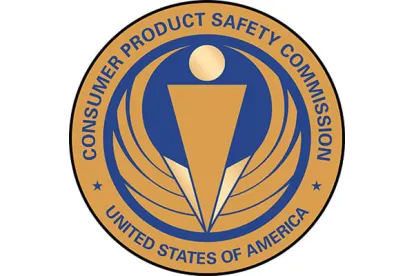“Hello. This is an automated call from Acme Manufacturing. Our records indicate that you purchased Product X between December 2019 and January 2020. We wanted to let you know that we are recalling Product X because of a potential fire risk. Please call us or visit our website for important information on how to participate in this recall.”
When companies recall products, they do so to protect consumers. In fact, various federal laws, including the Consumer Product Safety Act (CPSA), the Federal Food, Drug, and Cosmetic Act (FDCA), and National Highway and Motor Vehicle Safety Act (MVSA), encourage (and may require) recalls. And the agencies that enforce these statutes would likely approve of the hypothetical automated call above because direct notification is the best way to motivate consumer responses to recalls.[1]
But automated calls to protect consumers can run into a problem: the Telephone Consumer Protection Act (TCPA).
Are Recall Calls a Nuisance or an Emergency?
The TCPA seeks to protect consumers from the “nuisance and privacy invasion” of unwanted automated marketing calls.[2] The TCPA prohibits any person from making marketing calls to landlines, or any non-emergency calls or text messages[3] to wireless lines, using automated dialers or recorded messages unless the recipient has given prior written consent. The Act includes a private right of action and statutory per-violation damages – $500, trebled to $1,500 if a court finds the violation willful and knowing.[4] These penalties can add up quickly: In one case, a jury found that a company violated the TCPA nearly two million times, exposing the company to minimum statutory damages totaling almost $1,000,000,000.[5]
There is an important exception to the TCPA’s prohibition on automated calls. The TCPA allows autodialed calls for emergency purposes,[6] but the Act does not define that phrase. While the FCC has interpreted emergency purposes to mean “calls made necessary in any situation affecting the health and safety of consumers,”[7] recalls are not explicitly identified within this definition. As a result, aggressive plaintiffs have demanded millions in damages from companies that use automatic dialers to disseminate recall messages.[8]
For example, a grocery chain – Kroger – made automated calls to some purchasers of ground beef as part of a recall stemming from salmonella concerns. A plaintiff responded with a purported class action that did not mention the recall [9] but was based on consumers alleging that they had received “annoying” “automated call[s] from Kroger.”
Moving to dismiss, Kroger observed that the plaintiff – who had not listened to the call beyond its initial greeting[10] and thus could not comment on the call’s text – had “cherry-picked”[11] portions of consumers’ online comments to support the case, omitting text that clearly demonstrated that the calls were made for health and safety purposes.[12] Kroger argued that the online comments did not support the plaintiff’s allegations that Kroger had made any marketing calls.
The court granted Kroger’s motion and dismissed the complaint without leave to amend. Even so, Kroger was compelled to spend time and money defending the claim.
In light of this type of lawsuit, one communications firm involved in automotive recalls has petitioned the FCC to “clarify . . . that motor vehicle safety recall-related calls and texts are ‘made for emergency purposes.’”[13] The Association of Global Automakers and the Alliance of Automobile Manufacturers commented in support of the petition, arguing that the “[l]ack of clarity regarding TCPA liability for vehicle safety recall messages has had a chilling effect on these important communications.”[14] The Settlement Special Administrator for the Takata airbag settlements also wrote in support, commenting that automated “recall-related calls and texts serve an easily recognizable public safety purpose.”[15]
The TCPA’s emergency exception offers protection in litigation. The FCC’s definition – “calls made necessary in any situation affecting the health and safety of consumers” – neatly encapsulates the entire function of a recall, namely acting to protect consumers’ health and safety. Moreover, in developing the emergency exception, Congress broadened initial language that excepted calls made by a “public school or other governmental entity” to the enacted “emergency purposes” phrasing precisely to ensure the exception encompassed automated emergency calls by private entities.[16] One of the seminal emergency purposes for which a private entity might seek to make automated calls is a product recall.
Even with such sound arguments that TCPA claims related to recall calls are without merit within the statute, however, aggressive plaintiffs have brought such claims. These efforts compel companies to spend finite resources defending claims that should not be brought in the first place. An express statutory or regulatory statement that recalls are squarely within the definition of emergency purposes would give companies greater confidence that not only would they be able to successfully defend against any effort to pit the TCPA against consumer-protection values, but that the claims are so unlikely to be brought that the companies need not even fear to have to defend.
Protecting Against Recall-Call Complaints
Until the FCC or Congress expressly instructs plaintiff’s counsel not to try to litigate against automated recall calls, there are steps companies that want to use automated dialers to drive recall responses can take to minimize any risk of a court misinterpreting their calls or finding TCPA liability where it should not attach.
For example, companies may (as some already do) ask for customers’ consent to be autodialed in connection with the products they have purchased – e.g., by including consent language on product warranty cards or registration forms. In fact, the Consumer Product Safety Improvement Act of 2008 (CPSIA)[17] already requires manufacturers of durable infant and toddler products to include registration cards for recall-communication purposes.[18] Companies in some other industries (like the on- and off-road motor vehicle industries) typically have robust registration systems that can incorporate auto dialing consent, and more companies in other spaces may want to consider using registration to facilitate recalls.
Further, automated recall calls should focus on the recall. If calls extend to marketing messaging, that could undermine both a future TCPA defense and the efficacy of that and future recall communications.
Optimally, companies would be less likely to need these defenses if the statute more clearly signaled to would-be litigants that they should not even bother. If the FCC grants the pending petition and plainly states that product recalls are emergencies for TCPA purposes, courts’ deference to agency interpretations might deter at least some complaints. A statutory amendment would be the surest guarantee, though, and manufacturers may wish to ask Congress to amend the TCPA to clarify that recall messages are emergency messages.
[1] See, e.g., Joseph F. Williams, U.S. Consumer Prod. Safety Comm’n, Recall Effectiveness Workshop Report, 5 (Feb. 22, 2018).
[2] Pub. L. No. 102-243, § 2(12), 105 Stat. 2394, 2395 (Dec. 20, 1991).
[3] Rules and Regulations Implementing the Telephone Consumer Protection Act of 1991, CG Docket No. 02-278, Report and Order, 18 FCC Rcd 14014, 14115, para. 165 (2003)
[4] TCPA at § 3(a), 105 Stat. at 2399 (codified at 47 U.S.C. § 227(c)(5)).
[5] Wakefield v. ViSalus, Inc., No. 3:15-cv-1857-SI (D. Or.).
[6] See, e.g., TCPA at § 3(a), 105 Stat. at 2395-96 (codified at 47 U.S.C. § 227(b)(1)(A)).
[7] 47 C.F.R. § 64.1200(f)(4).
[8] See, e.g., Compl., Ibrahim v. Am. Honda Motor Co., Inc., No. 1:16-cv-04294, Dkt. #1 (N.D. Ill. Apr. 14, 2016).
[9] Compl., Brooks v. Kroger Co., No. 3:19-cv-00106-AJB-MDD, Dkt. #1 (S.D. Cal. Jan. 15, 2019) (“Brooks”).
[10] Pl. Opp. to Mot. to Dismiss at 5, Brooks, Dkt. #9 (Apr. 4, 2019).
[11] Reply in Supp. of Mot. to Dismiss at 7, Brooks, Dkt. #10 (Apr. 11, 2019).
[12] The plaintiff quoted one complaint as “Automated call from Kroger.” Compl. at 3-4, Brooks. As the defense noted, that complaint continued, “requesting that you return ground beef . . . due to the threat of salmonella.” Mem. in Supp. of Mot. to Dismiss at 6, Brooks Dkt. #7 (Mar. 21, 2019).
[13] IHS Markit Ltd. Petition for Emergency Declaratory Ruling, CG Docket No. 02-278, Petition, ii (Sept. 21, 2018).
[14] IHS Markit Ltd. Petition for Emergency Declaratory Ruling, CG Docket No. 02-278, Comments of Association of Global Automakers, Inc. and Alliance of Automobile Manufacturers, 9 (Nov. 5, 2018).
[15] IHS Markit Ltd. Petition for Emergency Declaratory Ruling, CG Docket No. 02-278, Comments of Patrick A. Juneau, 3 (Nov. 5, 2018).
[16] S. Rep. No. 102-178, 5 (Oct. 8, 1991).
[17] Pub. L. No. 110-314, 122 Stat. 3016 (Aug. 14, 2008) (codified as amended at 15 U.S.C. § 2056a).
[18] 15 U.S.C. § 2056a(d).




 />i
/>i
